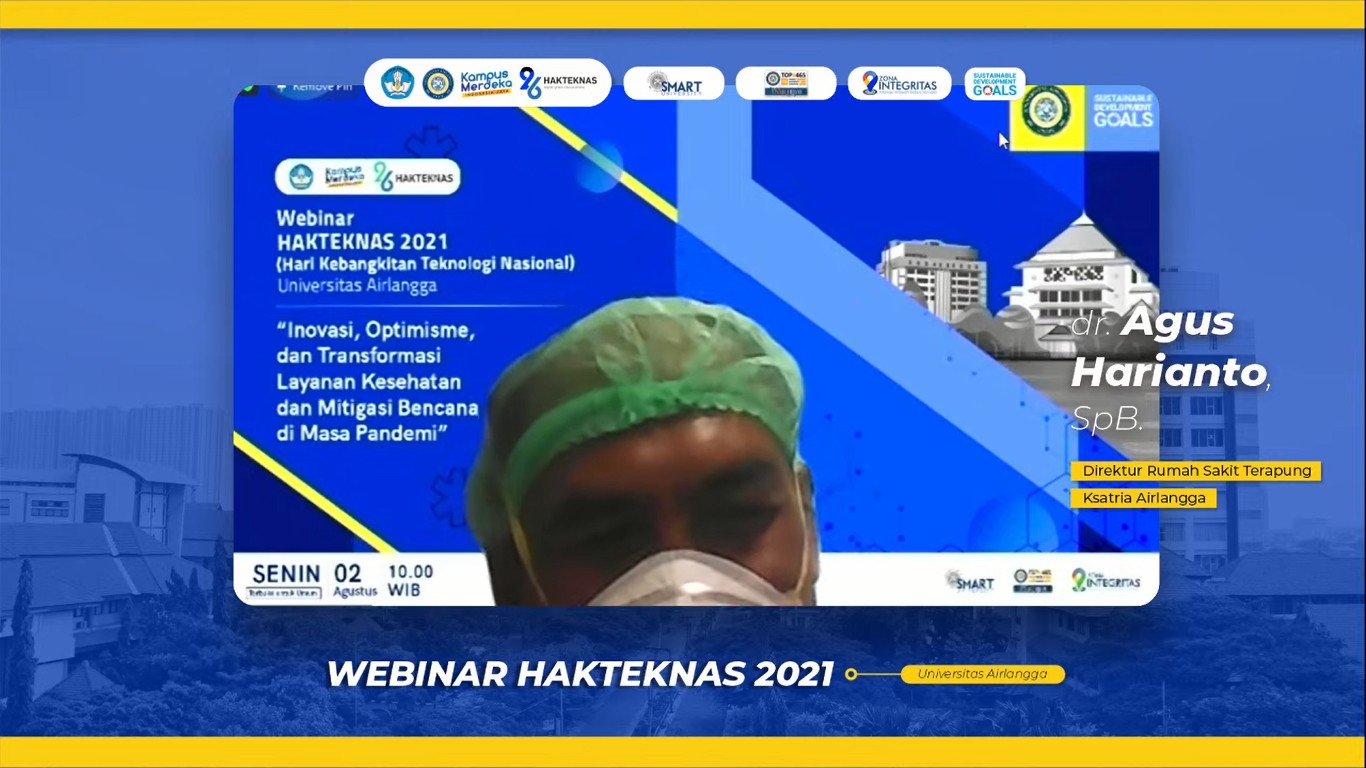UNAIR NEWS – In commemorating National Technology Awakening Day celebrated every August 10, UNAIR held a webinar on Monday, August 2, 2021. The webinar’s title was “Innovation, Optimism, and Transformation of Health Services and Disaster Mitigation in Pandemic Period.” The last speaker was the Director of the Ksatria Airlangga Floating Hospital (RSTKA), dr. Agus Harianto, SpB. He presented the contribution of RSTKA in health services in remote regions of Indonesia.
In the opening, he explained the challenge of equal health services in Indonesia from its geographical factor, an archipelagic country with more than 17,000 islands. Populations living in remote locations will have more difficulties and dangers to access health facilities due to the lack of transportation facilities, far and long distances to sail, the danger of the trip, and the financial capacity of the islanders.
“Patients’ potential to recover becomes small. In fact, there is an irony on Wetar Island where islanders sail to Timor Leste to get access to health services,” said the surgeon.
Therefore, he continued, RSTKA is present as a solution from UNAIR to answer these problems by making mobile hospitals that can reach remote areas of Indonesia. The floating hospital is similar to the Pinisi Ship. Agus explained that the RSTKA is focused on providing access to health services for the people in remote islands and areas that the Puskesmas cannot reach. Doctors and medical specialists support as volunteers in the hospital.
Agus explained that the destination of RSTKA must meet certain criteria: the area is remote and difficult to reach, has many health problems, fit the local demographics’ profile, and permits from the local government.
“This RSTKA ship is a tribute from UNAIR and the Indonesian people who support through donations. It is a form of UNAIR’s love and humility to people who really need love. The goal is entirely for humanity and social welfare,” said the UNAIR alumni.
Since its operation in 2016, he continued, RSTKA has stopped in 48 islands, providing 2449 surgeries and 14478 other specialist services. Some of the islands visited by RSTKA are Masalembo Island and Sabalana Islands. Agus said that the services and dedication provided by RSTKA are not limited to health services.
“Research on alternative medicine, psychotrauma treatment, sanitation and water purification, integrated social services, waste management, and psychosocial assistance. All of these services are from collaborations with other faculties at UNAIR and even other universities who are willing to send volunteers,” said Agus.
During the pandemic that spreads in the country, he explained, RSTKA only returned to sail in November 2020 and provided services with strict health protocols. Agus reflected on this pandemic with President Joko Widodo’s vision to return Indonesia as a maritime country with access to health services on islands and remote areas. He explained that the government’s missions to make Indonesia the world’s maritime axis are still based on the economy and defense.
“Of course, all of those are necessary, but hopefully, in the future, the Indonesian government will include the establishment of a maritime-based health system as well. There is an urgency and obligation of the government to create a health system where all Indonesian people can easily access their services,” he concluded.
Author: Pradnya Wicaksana
Editor: Nuri Hermawan





